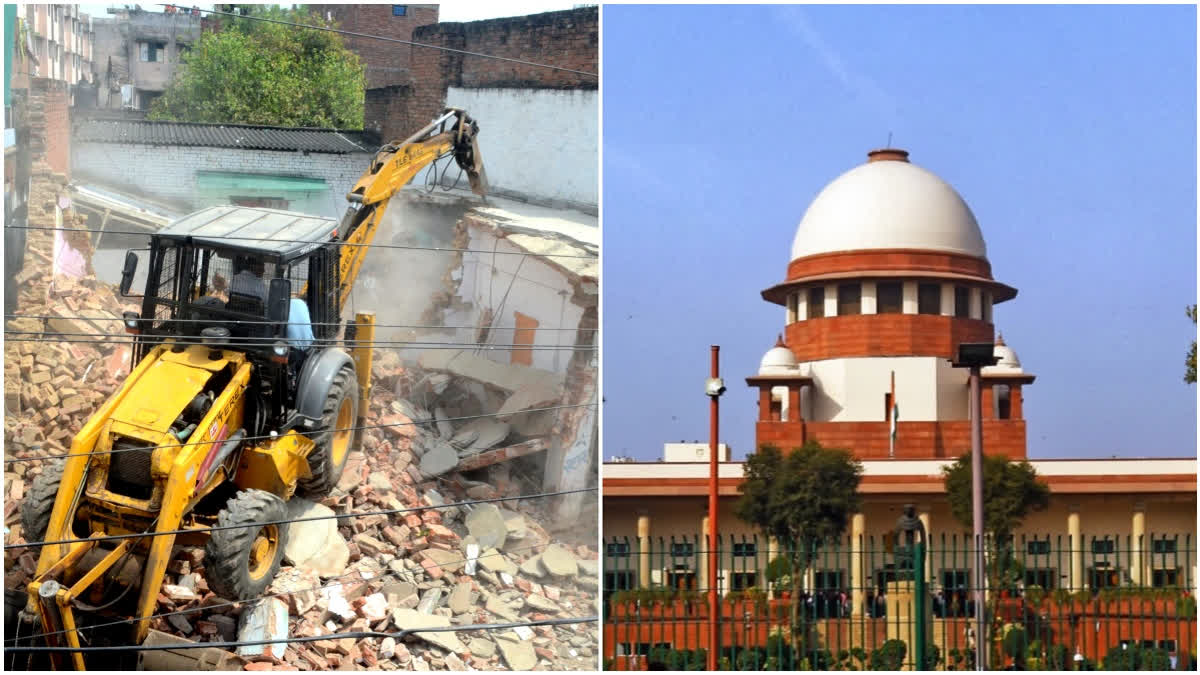New Delhi:Censuring the trend of 'bulldozer justice' in several parts of the country, the Supreme Court on Wednesday laid down comprehensive guidelines against such arbitrary demolitions calling them "totally unconstitutional" and in violation of the principle of separation of power.
The apex court said the "chilling sight" of bulldozers demolishing a building when the authorities have failed to follow the basic principles of natural justice is a reminder that "might was right". It said demolishing any citizen's property merely because he is an accused or even a convict without following the due process as prescribed by law would be "totally unconstitutional".
A bench of Justices B R Gavai and K V Viswanathan made the observations as it delivered its verdict on pleas seeking framing of guidelines on the demolition of properties in the country. It had reserved its verdict in the matter on October 1.
'Mandatory procedural safeguards'
- Exercising its power under Article 142, the bench outlined mandatory procedural safeguards to be observed across the nation, with specific rules for all states and union territories to ensure transparency and accountability.
- The bench said the concerned authorities are required to issue a “speaking order” explaining the decision to demolish a property.
- It said that all demolitions are to be recorded on video, ensuring evidence of compliance with the court’s guidelines.
- The court directed that no property may be demolished without prior written notice, and said that owners should be given at least 15 days to respond.
- The bench said notices must also be served by registered post and displayed on the structure in question, and it should detail the grounds for demolition and also give a fair window to contest, and the affected persons should have a personal hearing before demolition is undertaken.
- The bench clarified violation of its order by any officer would lead to contempt proceedings and prosecution separately and the officer would be held responsible for restitution of the property and payment of damage in such cases.
- The apex court said its order should be sent to all the High Courts and state governments for issuance of a circular for the officers concerned.
SC observations: 'High-handed actions'; 'Executive Cannot Declare A Person Guilty'
Stressing that the executive cannot replace the judiciary, the bench said the rule of law provides a framework and value system to reign in the arbitrary exercise of state power and prevent abuse of power.
“We have concluded that the executive in an arbitrary manner demolishes the house of a citizen only on the ground that they are accused of a crime then it acts contrary to the principles of rule of law," the bench noted. It said the executive acting as a judge and inflicting a penalty of demolition on the ground on an accused violates the principle of separation of power.
The apex court said the right to shelter is one of the facets of fundamental right under Article 21 of the Constitution and added, "It is not a happy sight to see women, children and aged people rendered homeless in such fashion".
